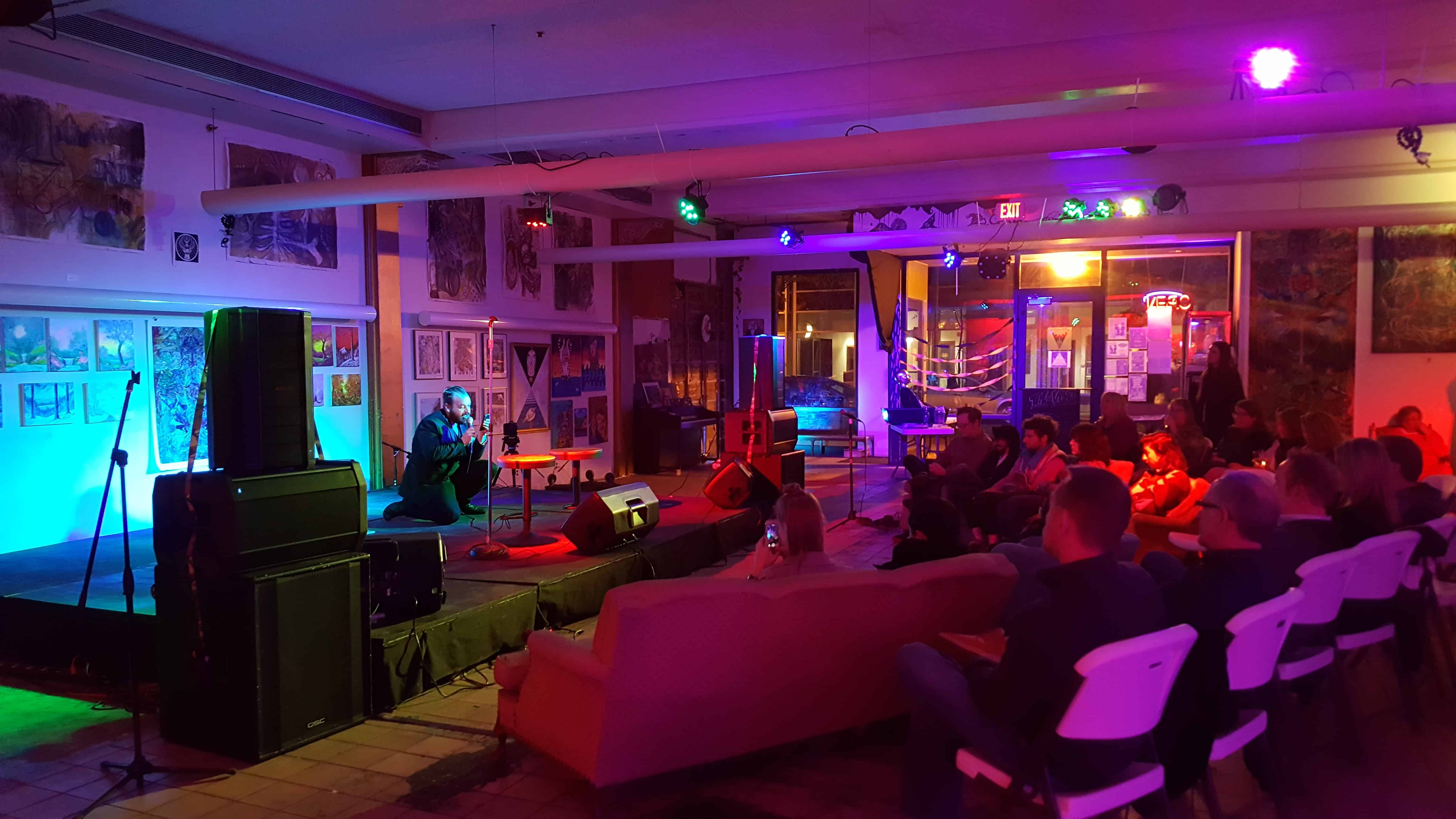On October 19, The Whistle Stop Poets and Comics ’16 Elections Tour will land in Toronto at The Steady Café and Bar. Hosted by poetry magazine Foundlings Poetry Zine, the event will be an evening filled with political commentary and spoken word.
Notable artists include Justin Karcher, author of Tailgating at the Gates of Hell; Aidan Ryan, an adjunct professor of English; Robert Priest, a Canadian children’s author; Dane Swan, author of A Mingus Lullaby; Benjamin Brindise, a Buffalo-based spoken word poet; and Megan Kemple, a Buffalo-based actress, playwright, and poet. We caught up with them to learn more about the tour and what they hope it will achieve.
Founder of Whistle Stop Aidan Ryan discussed the beginnings of the project. While on a trip to the Bahamas, Ryan had read Gerry Crinnin’s book Haiku to the Chief — a collection of haikus for each American president. Ryan was impressed with the collection and described it as “intelligent, sensitive, and worth hearing.”
Ryan further explained how this inspiration led him to organize a launch party at the Founding Father’s in Buffalo: “I… brought together some readers to ‘open’ for Gerry — this was on August 28th — and it was such a success that we thought we might take the ‘show’ on the road. Immediately the [presidential] debates suggested themselves as an organizing principle. We’d have four stops in four cities on the nights of the presidential and vice-presidential debates… Whistle Stop was born in a flurry of emails and phone calls over the course of the next month.”
One of the poets of Whistle Stop, Brindise explained his initial motivations for participating in political commentary. After conversing with another poet, Brindise was inspired by the idea that perhaps poets have a responsibility to be “record keepers of our time.” This sentiment seemed to align with the purpose of the tour.
Priest added that the force of political commentary lies in its social influence. In particular, he notes that poetry can serve as a catalyst for cultural movements, especially when like-minded artists are able to find each other and collaborate. In order to start cultural movements, Priest advocates the idea that political poetry be “launched more frequently into the mainstream media,” since engaging poetry can galvanize its readers.
On the humanitarian value of political commentary, Karcher noted that it can serve as a tool to share collective experiences. “[It’s] that so many people feel catastrophe, but are ultimately numb to what that might really mean, like the struggles that the person sitting next to you might be going through on any given day,” said Karcher.
Swan views political commentary as a conduit for social justice. He is primarily concerned with racial injustice, particularly the plight of African-Americans and white privilege. Swan referred to the disproportionate rates of incarceration of Black Americans and noted the incongruity of Black education and incarceration rates: “Statistics that I’ve read suggest that Black people are more likely to have postsecondary educations in North America than whites. Yet, we are disproportionately incarcerated.”
Though each poet understands the underlying values of poetry, the dissemination of poetry is not without its own critics. Poet Kemple understands the acerbic criticism that may follow the publication of her work. Kemple finds value in criticism; she gives critiques consideration because “the best advice comes from the most unexpected places.”
The Whistle Stop tour began on September 26 in Rochester, New York. The Toronto event will be its final installment.


